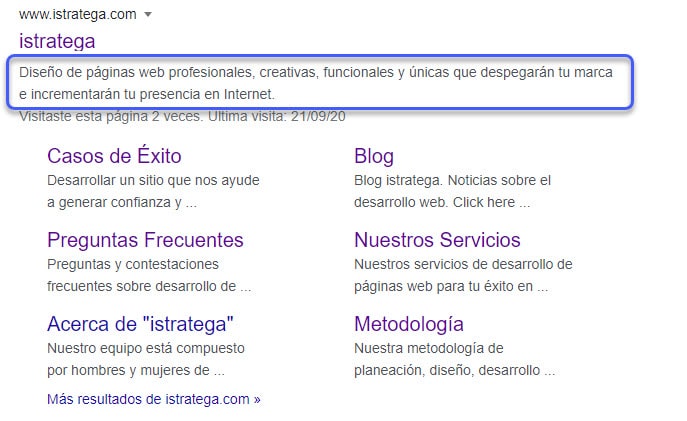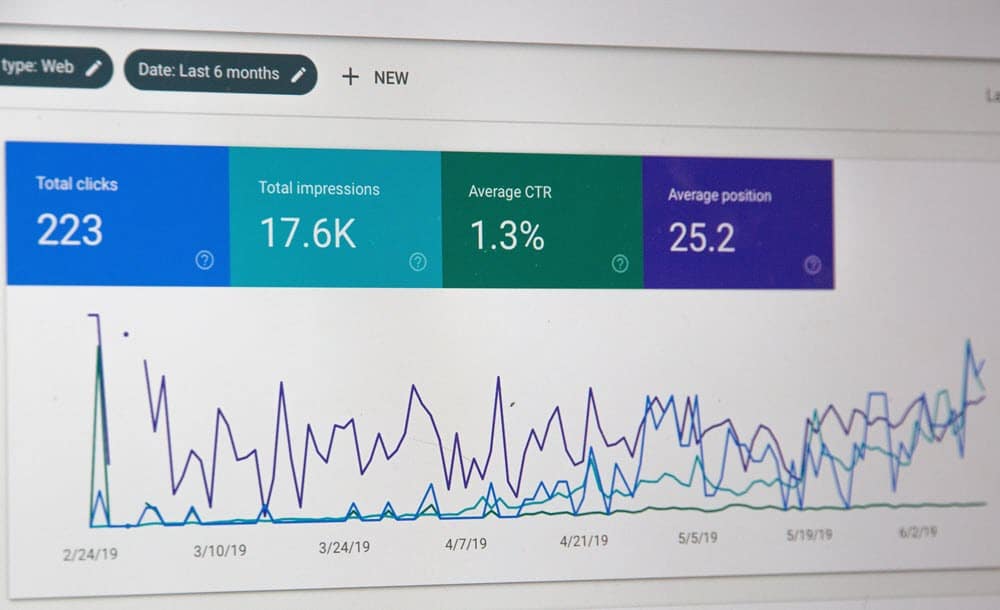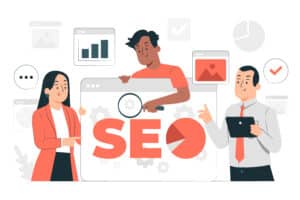On-page SEO (Search Engine Optimization on-page) are the basic tactics for search engine optimization, such as: using keywords in the title of your website, optimizing the meta description, HTML code and various tags.
On-page SEO are all measures that are taken directly, within a website, to improve its organic position on the Internet, making it easier for search engine robots (Google) to interpret the pages and give users a preview of where they are clicking on the search result. In addition, they take into account the overall quality of the web page content, performance (speed) and content structure.
On-page SEO factors:
Content
It's important to know that "content is king". You can do all the optimization around keywords, descriptions and internal links you want, but if the content of the page is not good, it will be difficult to get organic visits to your website.
Key words
Even though keywords are less important than they were a few years ago, keyword optimization is still a cornerstone of SEO. Think about your audience and the keywords they're searching for; then optimize your website content around those keywords.
Title tag
The title tag refers to the title of your web page, or the main heading you see in the SERP (Search Engine Results Page) and is one of the most important SEO factors after content.
Description - Meta description
A meta description is a short description that appears below the URL on a search engine results page. It describes the content of your web page, but more importantly, it is written to help the web page stand out in the SERP results list.

Alternative Text - Alt text
Alt text refers to the keyword that can be attributed to an image, to help it get indexed and for search engines to understand what it is about, as they can't see images, they only see text.
SSL / HTTPS
Page security is more important than ever and enabling this technology - Secure Sockets Layer (SSL) is crucial to improving the security, reliability and visibility of your website.

URL structure - URL structure
In addition to the factors mentioned above, an organized URL structure is important because it allows search engines to easily crawl from page to page on your website and makes navigation more efficient for visitors.
Internal links - Inbound linking
Internal links to related pages on your website are an important factor of on-site SEO.
Linking to different relevant pages makes it easier for search engines to crawl the links and also keeps your visitors on your site longer.
Performance - website speed
While other SEO factors relate to content quality and structure, the performance of your website and all of its pages are also ranking factors. Pages that take too long to load or don't render properly on mobile devices rank much lower in the SERPs, as users get desperate and go to your competitor's sites.
Search engines put a lot of emphasis on website speed and use it as a very important page ranking factor.
Therefore, it is essential to consider the size of image files on the page, reduce redirects, improve the mobile responsiveness of your site and optimize the source code.
Mobile Kindness - Responsiveness
Google reports that currently over 70% of internet traffic is routed through mobile devices, so they are pushing web developers to make web design responsive.

Schema markup
Google uses schema markup to get information from SERP snippets.
Fundamental Elements of the Web - Core Web Vitals
Launching in Spring 2020, Google's "Core Web Vitals" help determine a website's performance and user experience.
Each of the "Core Web Vitals" represents a unique part of the user experience. It currently covers three aspects of the user experience: loading, interactivity and visual stability.
At "Istratega" we develop websites with a strong emphasis on on-page SEO, in order to be indexed organically by Google.
Related articles
-
SEO - Search Engine Optimization Did you know that only 33% of small and medium sized businesses (SMBs) have optimized websites? If your website is not optimized correctly, you will lose all the potential that the search engine optimization...
-
Designing successful websites: the key ingredients. Websites come in all shapes and sizes, but there are certain features that are fundamental to all successful websites. It's a pleasure to be on a...
-
Faced with the economic crisis generated by the COVID-19, companies have opted to cut costs, some have done so in marketing. A big mistake because this is the time to intensify campaigns.



